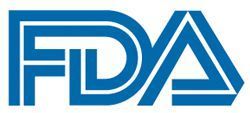Article
FDA Grants Orphan Drug Designation to SynKIR-110 for Mesothelin-Expressing Mesothelioma
Author(s):
The FDA has granted an orphan drug designation to SynKIR-110, a first-in-class KIR-CAR T-cell immunotherapy candidate, for the treatment of patients with mesothelin-expressing mesothelioma.
FDA

The FDA has granted an orphan drug designation (ODD) to SynKIR-110, a first-in-class KIR-CAR T-cell immunotherapy candidate, for the treatment of patients with mesothelin-expressing mesothelioma.1
SynKIR-110 is a next-generation cell therapy designed to target solid tumors. It is the first product to use the novel KIR-CAR platform, which is a modified natural killer–like receptor designed to improve persistence and efficacy against aggressive solid tumors. The KIR-CAR platform utilizes a dual-chain CAR T-cell therapy.
“ODD is another major milestone for Verismo following the acceptance of our SynKIR-110 [investigsational new drug application],” Bryan Kim, DMD, chief executive officer of Verismo, stated in a press release. “Mesothelioma is a rare and deadly disease for which few other treatment options currently exist. We look forward to working with the mesothelioma community to advance SynKIR-110 as a potential treatment while we continue to expand clinical investigation of this novel platform in other cancers in the solid tumor space.”
Preclinical models demonstrated that the KIR-CAR platform maintained antitumor T-cell activity in challenging solid tumor environments. Cell persistence was improved by DAP12 costimulatory chains aiding additional T-cell stimulating pathways.
Additionally, the KIR-CAR platform can be combined with other additional emerging technologies, such as in vivo gene editing, advanced T-cell selection and modulation, combination therapies, and allogeneic cellular therapies.
SynKIR-110 will be investigated in the phase 1 STAR-101 trial in patients with mesothelin-expressing ovarian cancer, mesothelioma, and cholangiocarcinoma. The trial is expected to begin enrolling patients in the first quarter of 2023.
This first-in-human trial will assess the safety, tolerability, and preliminary efficacy of SynKIR-110 in these patient populations to address a pertinent unmet need.2 For patients with mesothelioma, life expectancy can vary based on the type and location of the disease, stage at diagnosis, and general patient health, but survival typically ranges from 4 to 18 months after diagnosis.
Earlier in September 2022, the FDA granted clearance to initiate the first-in-human trial.2
“Pre-clinical data have shown enhanced efficacy in murine models with no additional safety concerns. The FDA’s clearance of our SynKIR-110 IND represents a new chapter for Verismo as we initiate the first-ever clinical trial for KIR-CAR T cells. It also validates the years of innovative research and hard work by industry pioneers at Penn and the Verismo team,” Kim stated in a press release.2
References
- Verismo Therapeutics receives U.S. FDA orphan drug designation for SynKIR-110™, a first-in-class KIR-CAR T cell immunotherapy candidate, for the treatment of mesothelioma. News release. Verismo. September 28, 2022. Accessed September 28, 2022. https://prn.to/3fgvuSK
- Verismo Therapeutics announces FDA clearance of IND application for SynKIR-110™, a KIR-CAR T cell immunotherapy candidate. News release. Verismo. September 20, 2022. Accessed September 28, 2022. https://prn.to/3UP717i








